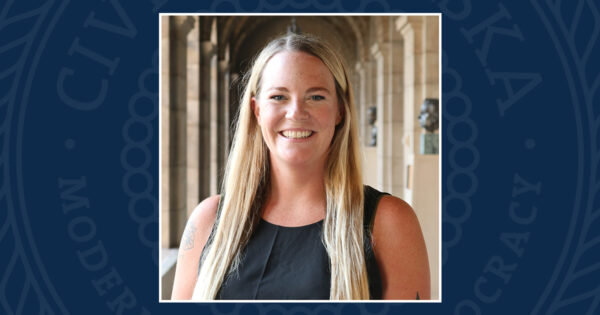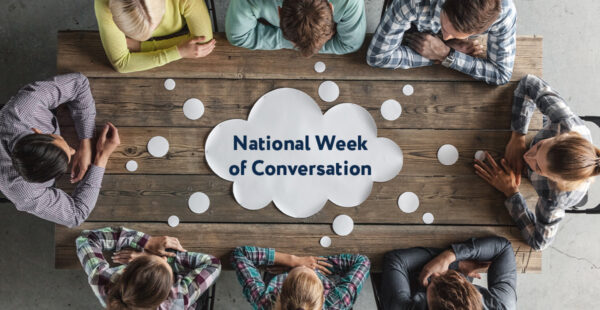America began as an argument. From the Founding to today, our American identity is rooted in debate, discourse, and discussion. The very process of never-ending argument is what bolsters democracy. Too often, arguments become fights, and that damages us and our Republic. How do we meaningfully engage with those with whom we vigorously disagree? Here are three suggested questions to ask ourselves, to nurture authentically American arguments.
1. “Is this constructive and productive?”
Yes, it’s tempting to show “the other side” the wrongness of their position, stance, or statement. You want to stand up for your beliefs by taking action. But by making someone deliberately feel bad about themselves, you cut down on the potential productivity of a conversation. Their defenses go up, and the conversation turns immediately into debate – or worse, hostility.
Civil discourse doesn’t have winners and losers. There is no scoreboard in a conversation that aims to be constructive. Rather than drive someone away from your dinner table, a more productive outcome would be to invite them to sit down, explain their position, listen, and then provide your perspective on the issue.
“Democracy begins in conversation,” philosopher John Dewey said. Thank goodness the Founders knew this.
 2. “Does this conversation create greater understanding?”
2. “Does this conversation create greater understanding?”
Disagreements and problems aren’t solved by digging in your heels. They’re solved when people listen, find common ground, and offer solutions based on that shared understanding.
Civil discourse is fact-based and honest, which provides a pathway to common ground. Your conversations must first start with a genuine attempt to understand the logic and emotion behind another person’s beliefs – civil discourse can’t happen without it. This doesn’t mean you have to accept someone’s beliefs or “alternative facts” as your own. But understanding always helps spur the conversation, and potential solutions, forward.
3. “Can I hold onto this relationship for a future conversation?”
One of the hardest things to witness is a conversation that breaks down and either creates or widens a seemingly impassable divide. Family dinners can be unbearably uncomfortable when your aunt, grandpa, cousin, or stepsister have wildly different belief systems than you. Naturally, stories about relationships being permanently severed over politics are becoming more and more common.
It’s important to remember that persuasion happens over time. If your aunt, grandpa, cousin, or stepsister don’t agree with you right away, that’s OK. Rather than taking pains to avoid one another for the rest of your lives, take time to examine where your beliefs diverge, and why that might be – and then revisit the conversation when you both feel it’s more appropriate.
Above all, remember that they are people, too. Losing your sense of humanity only degrades dialogue.
“The defining question of our humanity and of our civil society is not ‘Can we agree?’,” author Krista Tippett once wrote. “That’s kind of idealistic, and it’s not helpful. It’s more about how we can live together while we disagree about these things that are so personal. This requires much more of us, spiritually and practically, than the illusion that we’ll force agreement.”
This just scratches the surface of some of what Civic Nebraska discusses in its civil discourse programs. For more information, contact us at nancy.petitto@civicnebraska.org. We’re happy to talk … and, of course, we’ll be happy to listen, too.
![]()



